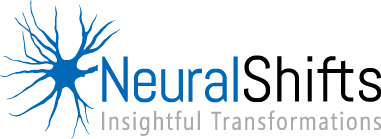Many organizations have implemented diversity and inclusion programs aimed at creating inclusive workplaces. However, most diversity programs simply distribute information. The best programs provide employees with skills that they can use across domains to be effective.
Diversity & Inclusion Skills You Need to Develop
If you are interested in designing a program to upskill employees, we recommend starting by writing your program goals, then identifying the skills you want your employees to adopt.
For instance, we designed a dialogue program with the aim to educate all employees about allyship, foster community, and upskill facilitators. Then, we identified the following skills to lead inclusive conversations.
1. Curiosity: In the dialogues, we encourage participants to lean into discomfort and respond with open-ended questions to gain a new understanding of the situation. A leader whose default behavior is to prove others wrong can benefit from this skill.
2. Suspending Judgment: It can seem counterintuitive to suspend judgment since our brain is constantly rewarded for judging situations to preserve safety. Throughout the dialogues, we ask people to adopt intellectual humility and suspend their judgment about situations and people. You know when you are not being judged because the energy people bring into the conversation feels light and open. You are also more likely to come back to share your thoughts with this person. So, when leaders learn to suspend judgment, they create psychological safety for all.
3. Assumption Testing: All scientific thinking involves the testing of assumptions. However, people rarely test their assumptions about others or situations. This often results in broken relationships or failed projects. The dialogues challenged participants to re-think social “norms” and test their assumptions. For instance, people come into the sessions with pre-conceived ideas of what’s “normal” or how to help a disabled colleague. Many times, they are surprised to find that the best way to help is to “ask, if the person wants help, instead of jumping into action.
4. Systems Thinking: Participants receive materials about systemic discrimination experienced across groups. Through conversation, they identify patterns of behavior and hidden structures that create inequitable conditions for certain groups. This skill permits people to not only see parts of an issue but to deconstruct the complexity of a system.
5. Inclusive Communication: In our dialogues, someone may commit a microaggression. So, we encourage the individual to share their intent while acknowledging their impact. In this way, participants model vulnerability and accountability. When facilitators model this way of communicating, they neutralize power dynamics that may have formed in the group.
Overtime, facilitators develop the ability to see inequities in complex social systems and intentionally include new perspectives to gain a greater understanding of social issues. We know these skills contribute to their professional effectiveness and leadership development. As you launch your DEI programs, we encourage you to measure skill development. If you want to learn more about the dialogues program visit this page.




0 Comments